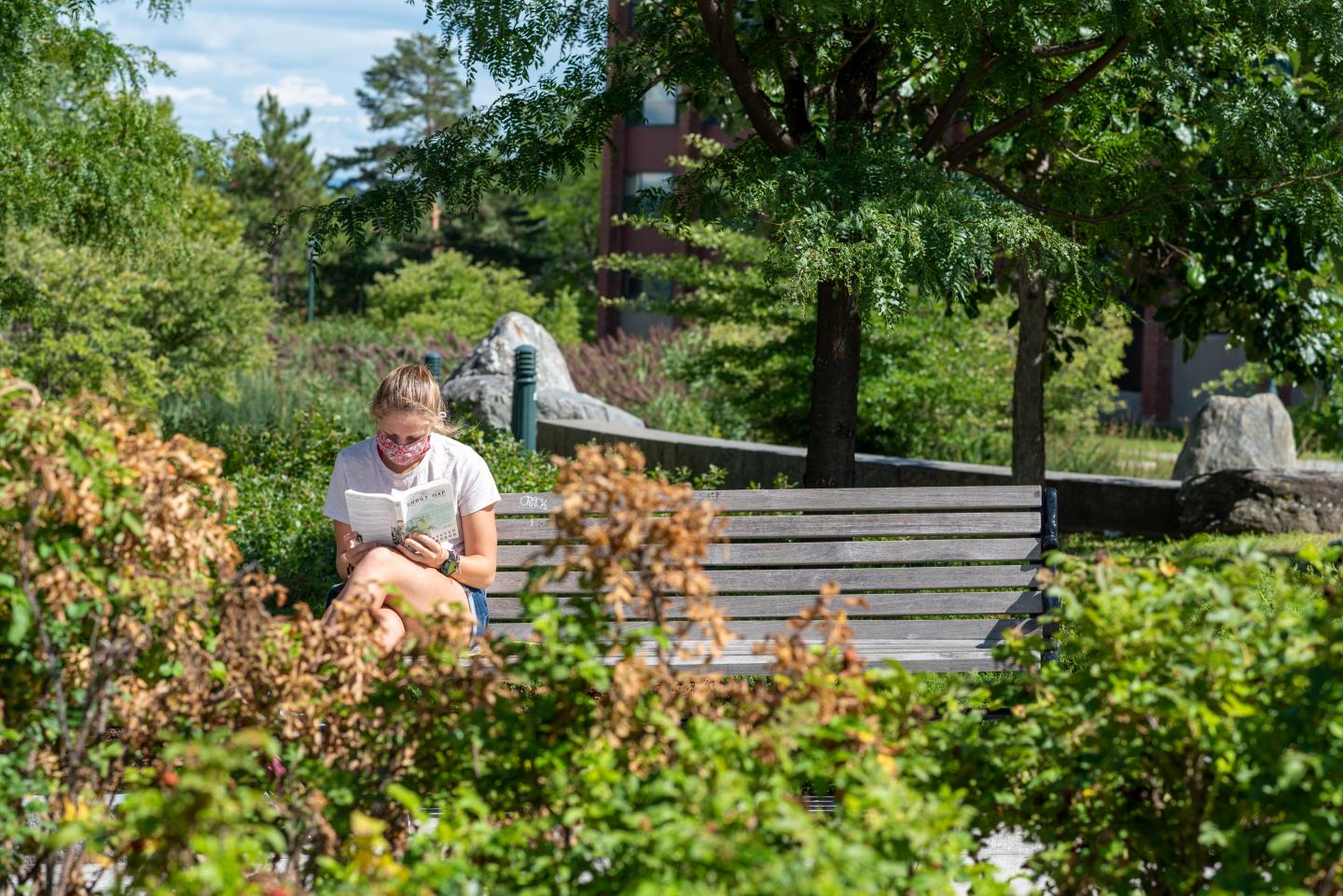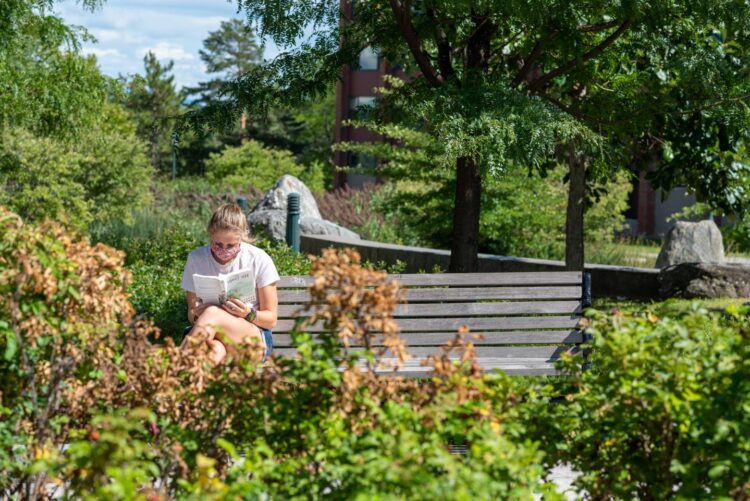Study is among first to explore COVID-19’s impacts on how people value nature

One of the first studies of its kind finds significant increases in outdoor activity during COVID-19, especially among women.
Spotting horned owls in neighborhood trees? Raising a bumper crop of winter squash? You may have much in common with individuals in a new study.
People in the study–who ranged from stuck at home to stressed in essential worker jobs–reported significant increases in outdoor activity during COVID-19, especially among women.
Outdoor activities seeing the largest increases were: watching wildlife (up 64%), gardening (57%), taking photos or doing other art in nature (54%), relaxing alone outside (58%), and, yes, making their masked and distanced way on walks (70%).
People also experienced a shift in why they value nature. During the pandemic, respondents said in nature they cherished a greater sense of mental health and wellbeing (59%), exercise (29%), appreciating nature’s beauty (29%), sense of identity (23%) and spirituality (22%), along with other less common values.
The Vermont research is one of the first published studies to explore how the COVID-19 pandemic has affected Americans’ relationship with nature.
“These data are like a treasure chest of the pandemic moment: a record of how people have been thinking about their relationship with the rest of the world in a time of great upheaval,” says Rachelle Gould of the University of Vermont, the study’s senior author.
The research is the first of two UVM studies being published this week by PLOS ONE on nature and COVID-19.
Key differences across groups
Not everyone experienced more nature equally. Differences were tied to factors including gender, income and employment, and whether people lived in urban or rural areas.
Women increased their nature use in more ways than men. Across the six most common nature activities in the study, women were 1.7 (gardening) to 2.9 (walking) times more likely to report increasing their engagement than men. Men were not more likely than women to report increased engagement in any activities.
While the study advances our understanding of gender differences during COVID-19, the researchers plan to inspect this finding further. They wonder if women had a greater need for stress relief during the pandemic, and are potentially more likely than men to turn to nature for that.
“More research is needed, but our preliminary analysis suggests that, during the pandemic, women are more likely than men to report increased importance of values that includes mental well-being, beauty, exercise, familiarity with landscape, and fun,” says Gould. “Our next step is to explore the qualitative data to explore this result deeper.”
Those who lost their jobs during the pandemic also had higher odds of reporting increased gardening, relaxing socially, walking, and wildlife watching. “This suggests that COVID-19 is overturning the idea that nature and its benefits–from stress reduction to social connection– are becoming ‘luxury goods,'” says Diana Hackenburg, a PhD candidate at the Rubenstein School, and a Gund Graduate Fellow.
Some groups valued tradition or food more and expressed those thoughts. With different results from urban and rural respondents, the researchers say there is more to learn behind the numbers, and plan future studies.
A first wave of COVID-19 research
Very few peer-reviewed studies have been published on the issue of Americans visiting nature during the pandemic, despite media reports and personal experience that suggest it is happening. This study, plus a UVM study that finds a large increase in new nature users, join recent study from Rice et al. and another from Norway among the among the first, globally. The study is further unique because it explores not only changes in activities, but also people’s values towards nature.
The team hopes decision makers can learn more about which populations are using nature more or less during the pandemic, “and focus on removing barriers to nature access, to increase equity,” says Joshua Morse, lead author, a PhD candidate at the Rubenstein School, and a Gund Graduate Fellow.
While many studies have explored how natural disasters (volcanoes, tornadoes, fires) impact human values, UVM researchers wanted to investigate a different type of crisis–a pandemic, which differs in key ways from other “natural disasters.”
Of the 15 outdoor activities studied, some went down in frequency – including camping – while other activities stayed relatively constant, including biking, boating, and fishing.
“Our work catalogues a part of this pandemic that might otherwise be under-discussed or hard to provide evidence for,” says Gould, an assistant professor in UVM’s Rubenstein School of Environment and Natural Resources and faculty fellow in the Gund Institute for Environment.
In addition to Prof. Gould and Morse, study authors include PhD candidates Diana Hackenburg and Tatiana Gladkikh, both Gund Graduate Fellows in the Rubenstein School. This research is one of six COVID projects launched by the Gund Institute for the Environment.
“This study is a timely snapshot of the central role nature plays in our well-being, and how important access to nature is during challenging, uncertain times like this pandemic,” says Gladkikh. “I hope the results help inform future land management decisions.”
The data resulted from online surveys of over 3,200 people in Vermont during the state’s “Stay safe, stay home” executive order, announced in May 2020.
###
Media Contact
Basil Waugh
[email protected]
Related Journal Article
http://dx.





